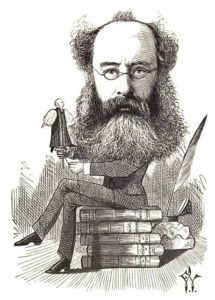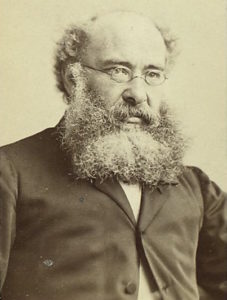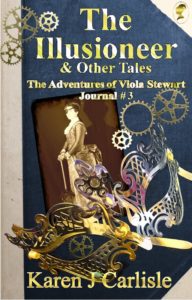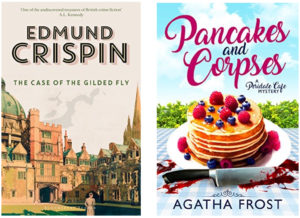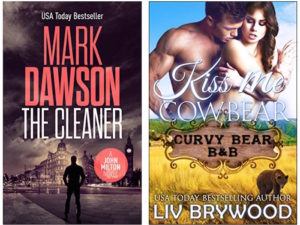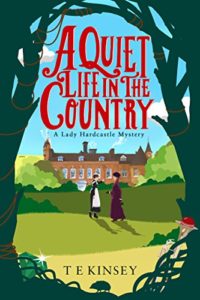Last week I wrote that the Victorian writer Anthony Trollope is my writing mentor. He is the one who keeps my feet on the ground when it comes to writing and advice and writing fads.
This week I would like to continue exploring what today’s indie authors can learn from Anthony Trollope. Let’s look at a few more areas where he can teach us valuable lessons.
Gadgets
Lots of writers spend lots of money on all manner of gadgets and software to help them write. I think it is an age thing. Those who grew up with computers are more likely to be attracted to gadgets to help them write.
But gadgets do not make the writer.
Trollope wrote with a steel dip pen, ink, and paper. That’s it. No Scrivener. No Dragon. No Hemingway Editor. No classes to learn how to use Scrivener. And certainly no computer.
We don’t need gadgets to write well. We might think we do because we live in an age filled with gadgets. What we really need to write well, is to know how to tell a story. And sad to say, gadgets can’t help us with that.
There is plenty of evidence that shows writing by hand will produce a superior product. And Trollope has shown us that we can produce 10 books a year simply by using pen and paper.
We don’t need gadgets and we don’t need to spend the money to buy the gadgets or learn how to use them. Writers write.
Beats, Structure, and Formulae
Many of my fellow writers obsess over how to tell the story. They get all wrapped up in making sure they have all of the story beats that somebody told them they needed. Or they struggle to fit their story into three-act structure or five-act structure. Or they slavishly follow Lester Dent’s formula or Freitag’s Pyramid.
To my mind this is all crazy. It’s a waste of time. Most of it anyway. We all know conflict drives a story. The conflict can be external or internal. The conflict can be subtle or violent. We know we have to batter our protagonist until he or she reaches down deep to draw on that inner strength that enables him or her to triumph.
So do it. Just tell the doggone story.
Once again, Trollope shows us how to do it. In his Autobiography, Chapter 5, he wrote:
“[The Warden] has a merit of its own,—a merit by my own perception of which I was enabled to see wherein lay whatever strength I did possess. The characters of the bishop, of the archdeacon, of the archdeacon’s wife, and especially of the warden, are all well and clearly drawn. I had realised to myself a series of portraits, and had been able so to put them on the canvas that my readers should see that which I meant them to see. There is no gift which an author can have more useful to him than this.”
Characters. Well drawn and believable characters. That’s what it’s all about. They’re the secret to telling your story. Not beats or formulae. Ray Bradbury put it this way: create your characters, let them do their thing, and there’s your story.
We can spend all the time we want making sure X happens at the one fifth mark of the book and that Y happens at the one third mark of the book. That the mirror point happens precisely at the 50% mark. Etc. etc.
None of that makes for a good story unless one has good characters. As Trollope noted in the seventh chapter of his Autobiography:
“A novel should give a picture of common life enlivened by humour and sweetened by pathos. To make that picture worthy of attention, the canvas should be crowded with real portraits, not of individuals known to the world or to the author, but of created personages impregnated with traits of character which are known. To my thinking, the plot is but the vehicle for all this; and when you have the vehicle without the passengers, a story of mystery in which the agents never spring to life, you have but a wooden show.”
Sure there has to be a story, and Trollope admits this, but the story, the plot, is secondary to the characters. Plot exists in order to bring out the characters of the story. Characters that come across as real. Characters that make us laugh and tug at our heartstrings.
Therefore, create good characters, throw problems at them, and let them do their thing. Letting a story unfold organically will always lead to a better story then one forced into some kind of mold.
Reviews
Writers today obsess about reviews. If they get one bad review, their world seems to fall apart.
Let’s face facts. There are going to be people who don’t like what we write. There are going to be people who love what we write. And there are going to be people who think our writing is okay but no great shakes.
That’s the name of the game. And to top it off, the public is a very fickle creature. What’s hot today will be cold tomorrow.
Trollope had his share of adverse publisher and reader reactions. His first three books sold nothing. As in zero copies. At least that Trollope was aware of. In fact, he didn’t even get paid for the first two because apparently the publisher didn’t make any money. For his third book he received a £20 advance. And that was all the money he ever saw for it. Again, because the publisher didn’t make any money on it.
After those debacles, Trollope didn’t doubt that he should try to be a writer. He accepted the public’s opinion that they didn’t like those books and decided to try his hand at a play. When his friends told him to go back to novel writing he accepted that too. But he never doubted that he could be a writer. And that’s important. He had self-confidence. He just had to identify what the problem was that other people were signifying that he had.
And the problem for Trollope turned out to be subject matter. Apparently the English public wasn’t ready for Irish novels, or historical novels (at least how Trollope wrote them).
So Trollope turned to writing a contemporary novel set in a fictional English cathedral city. With The Warden, his fourth novel, Anthony Trollope finally made some money. In two years, he made a little over £20 from royalties. Or about $2700 in today’s money. Two years later, Barchester Towers was published, for which he received an advance of £100.
Trollope had finally achieved success. He hit on a subject the English reading public liked. His strength was in writing contemporary novels about the people in his own class. And he did it well. Mostly because his characters are so delightful.
The lesson for us is if we wish to make money writing, then we need to write what we know and write what resonates with the market.
Many writers eschew writing to market. They somehow think that sullies their reputation or the literary quality of what they write. But stop and think about this for a moment. Shakespeare wrote to market. Dickens wrote to market. Longfellow, about the only poet who ever made a living from poetry, wrote to market. There is nothing wrong with writing to market, unless one does a very bad job of it. And unfortunately there are writers who do.
Writing to market simply means you’re writing books or short stories that people want to read. Trollope’s Irish novels are very good, but no one in the 1840s wanted to read them. Trollope loved Ireland and could have written lots more Irish novels, but he wanted to make a living from writing and knew that if he persisted in writing Irish novels he would not be able to accomplish his goal. So he eventually turned to writing about the other thing he knew — his own class, and the reading public devoured his books.
Regardless of what he wrote, Trollope’s goal was to write the best book that he could. Shouldn’t that be our goal? And does the genre or subject matter truly matter that much?
If you like science fiction, and military science fiction is all the rage, then write the best military science fiction novel that you can. Trollope didn’t especially love English cathedral cities. But he knew the setting would enable him to write about the people he knew and from that produce good books. If we want to be successful, doesn’t Trollope’s attitude and approach make sense?
When we get bad reviews, we should look at what the people are really saying. Maybe they’re telling us something, and maybe we need to take heed of what they’re telling us. Trollope did, and went on to become a very successful author.
Anthony Trollope is a person who can show us how to triumph in adversity, set a dream for ourselves, and through perseverance and astute observation achieve that dream.
You can get Anthony Trollope’s Autobiography for free at Project Gutenberg. It’s a marvelous handbook for success.
As always comments are welcome, and until next time happy reading and writing!
Share This!